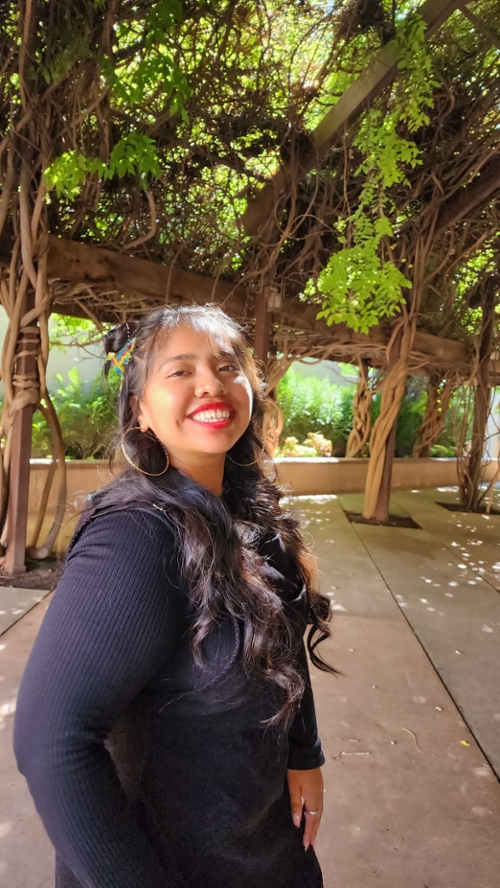Lupita Aviles
M.A. Student

Bio
Instagram: @lupita.aviles.568
I am a first-generation, Mexican American, Master's student. I was born in Illinois but grew up in Texas my whole life. I always knew from little that I wanted to get into education, partly because of my responsibility to my parents but mostly because of my own interests. I chose to go to college at Ripon College, located in Ripon, Wisconsin. The first year of my undergraduate studies was hard because of the immense change in the environment that I was accustomed to back home. I often felt like I didn't belong there and doubted my abilities because of the constant comparison with my peers who came from different social, economic, and linguistic backgrounds than me. I eventually found healthy ways to manage these feelings and continued on with my academic journey. During my undergraduate studies, I had many opportunities to do research, work independently with my Professors, and become more involved with the community. After I got my bachelor's in Spanish I decided to go to graduate school at UNM. The change from a small liberal arts college to a large university was very scary at first but I am glad to be here at UNM as I have gotten to know lots of amazing people both in and outside of my master's program!
UNM has a wide range of majors/choices of study within the humanities. I chose the humanities at UNM because of my program's interdisciplinary approach to Latin American Studies. I knew that I wanted to conduct research on my interests in history, language, and art within Mexico, specifically centering on the lens of indigeneity. The MALAS program (Masters in Latin American Studies) at UNM allows me to focus on all my research interests while also providing opportunities to work within multiple departments. From my time here at UNM, I have a newfound interest in linguistic anthropology which I have been able to incorporate into my final research project. I have also been able to meet wonderful scholars and hear about their interesting scholarly work through events. One of the main reasons for choosing the humanities at UNM for me was because of the indigenous languages program which has allowed me to learn Nahuatl from beginner to advanced level. UNM also has amazing collections at Zimmerman Library, for me I love the Latin American collections, which was also one of the reasons for choosing the humanities at UNM.
In my undergraduate institution, Ripon College, I've had many humanities research experiences ranging from literary research on the role of nostalgia and trauma in the novel "Cien años de soledad", to researching and preparing art exhibitions, to film analysis of the Argentinian film "Felicitas". I've also collaborated with the Univercity Alliance at UW-Madison to interview local artist in the Wisconsin Rapids area on their perspectives on public art. I also had the opportunity to do research at UW-Madison through the Summer Education Research Program. I conducted research on the importance of critical language awareness pedagogy in heritage language classrooms.
As a graduate student at UNM, I have also had many opportunities involving the humanities. My first year as a graduate student, I had the opportunity to learn Nahuatl, an indigenous language of Mexico through the LAII indigenous languages program. I have also been awarded the FLAS fellowship through the LAII during the summer and both academic years which have helped me fund my graduate studies. This past summer with the help of the FLAS fellowship I was able to attend the University of Utah's Nahuatl Summer Language Program which greatly helped immerse myself in the language and network with other peers and faculty interested in Nahua scholarship. I also had the honor to participate in a summer English-Nahuatl Workshop in collaboration with IDIEZ (Instituto de Docencia e Investigación Etnológica de Zacatecas) in Tecomate, Chicontepec located in Veracruz, Mexico. Through funding from the LAII and the UNM Global Education Office, I was able to fully fund this opportunity. In this workshop, I taught English to elementary students in Nahuatl with the goal that the students would become proud and comfortable to speak Nahuatl more openly. I am currently working on archival research looking at colonial documents from Tlaxcala, Mexico in order to understand how Tlaxcalans viewed and understood their own identity.
